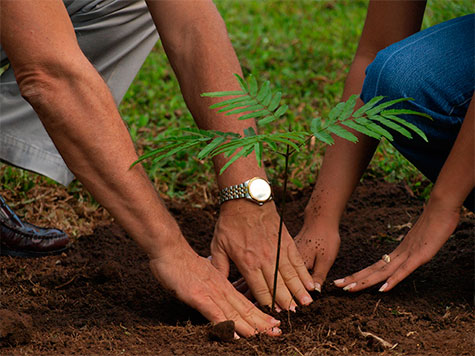Chapter V: Final Remarks and References
Table of Contents
- Chapter V: Final Remarks and References
- Final Remarks
- References
Final Remarks
The Caramulo fires caused a total burned area of about 9415.5 ha and 6 casualties. They resulted from a complex combination of variables from human factors to adverse meteorological and topographic conditions.
This case study explored the capabilities of different satellite instruments regarding
- Fire detection and monitoring
- Changes in vegetation
- Carbon emissions to the atmosphere
Although devastating ecological, social and economic consequences will be felt for many years, a sign of better things to come was found in a reforestation project to plant 11000 native trees in Caramulo from March 2014 onwards:
 |
| Figure 11: Diário Digital / Lusa (http://diariodigital.sapo.pt/news.asp?id_news=686393) |
References
Product User Manual PUM FRP Fire Radiative Power - SAF/LAND/IM/PUM_FRP1.5. 2010
Relatório dos grandes incêndios florestais na Serra do Caramulo, 2013 Departamento de Conservação da Natureza e Florestas do Centr. ICNF- R DCNF-C/01/2013 (in portuguese)
Wooster, M. J., F. Roberts, G. L. W. Perry and Y. J. Kaufman, 2005 Retrieval of biomass combustion rates and totals from fire radiative power observations: FRP derivation and calibration relationships between biomass consumption and fire radiative energy release, Journal of Geophysical Research., 110, D24311, doi: 10.1029/2005JD006318.